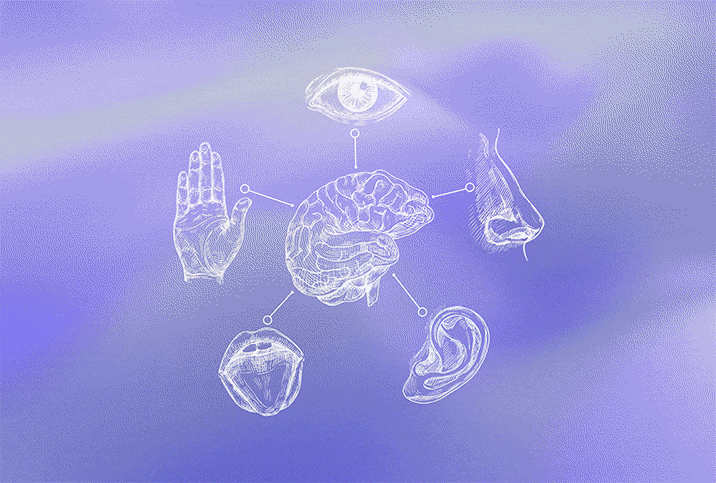Your Brain on Apps: The Cognitive Effects of Computerized Training

Elevate. Impulse. Lumosity. MEternally. Memorado. NeuroNation. What's with all the brain-training apps? Do they deliver the cognitive benefits we're seeking?
A study published in 2021 in Scientific Reports involving 12,000 older adults found subjects improved their processing speed throughout the course of 100 sessions using cognitive mobile games, whether the participants were closer to 60 years old or 80 years old. Authors of a meta-analysis published in the same journal the year prior evaluated randomized controlled trials assessing the use of commercial computerized games to improve cognitive function in adults older than 60 without cognitive impairments, and concluded the games improved participants' cognitive function.
Using functional magnetic resonance imaging (MRI) to track brain blood flow from moment to moment and to find out where neurons are firing in the brain, authors of a small study in 2009 found older adults without previous internet search experience who practiced searching online for an hour a day showed significant increases in neural activity after one week.
"Another lesson is that you can teach an old brain new tricks and you can engage those neural circuits," said one of the researchers of the experiment, Gary Small, M.D., professor emeritus of psychiatry and behavioral sciences in the David Geffen School of Medicine at the University of California, Los Angeles, and physician in chief for behavioral health at Hackensack Meridian Health in Hackensack, New Jersey.
The experiment didn't necessarily demonstrate that digital brain training makes a person smarter, Small added, but it suggested searching online can exercise your brain cells.
Apps and cognitive function
Small said research has looked at how apps affect working memory, the short-term recall used to solve problems. Problem-solving requires the ability to hold pockets of information in working memory as the thinker juggles other bits of information.
"If you go on the app store and use a search term, 'IQ boost,' you'll find a game that is like the old game of Concentration," he said. "It's challenging, but playing it has been shown to improve working memory. It also transfers to what we call 'fluid intelligence.' In other words, problem-solving skills."
A number of apps available for download are designed to help seniors boost memory, but as Small suggested, the benefit associated with brain-enhancing app use, beyond what's task-specific, may be realizable regardless of age.
Small has co-authored several books about boosting brain power, including "Super Memory: Speed Read, Recall Names and Learn Faster," and "2 Weeks to a Younger Brain: An Innovative Program for a Better Memory and Sharper Mind." He also helped develop an app that Karen Miller and colleagues tested in a study involving older adults in senior living.
"To say that prevents dementia, we don't know that," Small noted. "But we know that it did help their memory performance."
Research does support the notion that time spent playing electronic games and activating neural circuits lowers the risk for dementia, he added. But he's not aware of studies conclusively showing that the use of a specific app demonstrably wards off cognitive decline or significantly decreases dementia risk.
"In fact, most of the apps that are out there, they don't study them systematically," Small said.
The case of CogniFit
CogniFit, a company based in Seattle that offers app-based brain games and tests, doesn't fund peer-reviewed studies but does have a team that contributes to relevant neuroscientific research. Such research informs the design of future digital therapeutic products to enhance cognitive skills, specifically those skills that can be negatively affected by various conditions.
"We have a range of key clinical studies through our partnerships with leading institutions around the world that have helped us shape the CogniFit software and development of our games over the last decade," explained Carlos Rodríguez, CEO of CogniFit. "Most of our peer reviews have been focused on how we can continuously improve cognitive abilities through different forms of brain stimulation techniques, which we now incorporate into CogniFit games."
The peer-reviewed research in this domain dates back more than a decade.
The results of a study published in NeuroRehabilitation in 2010, which used the CogniFit Personal Coach individualized app program as an intervention in a training group, suggested an association between improved memory (along with processing speed) and the use of computer-assisted personalized cognitive training in patients with multiple sclerosis. However, by the researchers' own admission, the absence of "true subject randomization and the intention-to-treat principle" made a properly unbiased assessment of the training efficacy impossible.
A randomized double-blind prospective trial published the following year compared classic computer games to personalized, app-related cognitive training involving the CogniFit Personal Coach program. The study found benefits in both groups of subjects but greater effects for those using the CogniFit tools in seven of eight cognitive domains assessed.
Researchers found the personalized brain-training program to be "significantly superior to computer games in improving visuospatial learning and visuospatial working memory, two processes that are important for daily tasks," and notable because visuospatial processing can deteriorate with age and isn't thought to be a highly fluid ability.
"Many processes and abilities are engaged when one plays a computer game and, for some individuals, this might result in an overload on already deteriorating abilities," the authors of the study wrote. "On the other hand, cognitive training programs that purposefully design and utilize tasks for more specific cognitive goals might prevent such an overload."
Rodríguez said the cognitive stimulation therapy CogniFit provides is not just about playing random games.
"It's not enough to play games online and hope that it helps improve cognition," he said. "An adequate cognitive training program requires an accurate cognitive assessment, a therapeutic goal, a theoretical mark and personalization in the games themselves. This is the only way that we can be sure that our brain is receiving the cognitive stimulation that it needs."
Some 4 million people have interacted with the CogniFit platform in the past 10 years, he added, and its widely used tools work, in part, by engendering neuroplasticity.
"By brain training with this leading program in the field of cognitive intervention and rehabilitation, the user is able to stimulate specific neural activation patterns," Rodríguez explained. "The repetition of these patterns through tasks and games can help improve connectivity in the brain, create new synapses and optimize the functioning of neural circuits."
Other health considerations
More recently, CogniFit Chief Scientific Officer Evelyn Shatil co-authored research examining the effectiveness of app-based cognitive training.
"Evelyn's main research focus has been specific to studying the benefits of computer-based cognitive training and personalized training techniques to enhance cognitive functioning," Rodríguez explained. "Her key findings have revealed that significant cognitive gains are achieved by cognitive training interventions which, if combined with physical training, achieve significantly larger cognitive benefits."
The emphasis on exercise appears apt because there are potential negative consequences associated with excessive app use and screen time generally.
Small, who co-authored the book, "iBrain: Surviving the Technological Alteration of the Modern Mind," noticed people in his clinical practice complaining they couldn't remember phone numbers anymore. He advised them not to worry too much about memory because that can make the inhibition worse. You can choose what you commit to memory, he added.
"But another problem that I noticed is when my kids were teenagers and using their devices so much, the eye contact wasn't there," Small explained. "There's a lot of distraction."
A study he co-authored compared young people who attended a nature camp where they were away from digital technologies to a control group with adolescents who used devices as usual for several hours per day. The experiment found significant improvement in social and emotional intelligence among kids in the outdoor education camp who were away from screens for just five days, suggesting impairments in human contact skills from heavy technology use are not permanent.
A 2020 review article Small co-wrote recounts research documenting several harmful effects that can come with apps and other digital technology use, such as reduced attention, impaired social and emotional intelligence, internet and device addiction, isolation, adversely impacted cognitive development and sleep disruption.
In the same review, researchers cited evidence that memory apps may aid in improving immediate and delayed memory, as well as language use. They referenced research corroborating modest improvements in overall or comprehensive cognition and memory, and attention among people with mild cognitive impairments who engage in app-based training.
Technology that keeps kids glued to screens can be detrimental to health and development, but carefully crafted apps that appeal to youth and to other specific demographics—especially if personalized insights into a user's cognitive profile are available—may help optimize abilities and cognitive age.
CogniFit serves multiple demographics, according to Rodríguez: "This includes from children at schools between 5 to 11 years old to youths facing the pressure of educational challenges or becoming first-time car drivers to elders of 55-plus who are trying to maintain healthy cognitive functioning."
CogniFit offers a range of training modules and personalized training experiences. He said adults and children interested in trying CogniFit tools can begin with a 35-minute-long cognitive assessment battery, a comprehensive online test that evaluates nearly two dozen cognitive competencies.




















